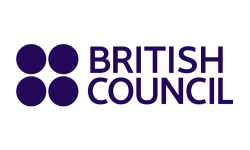- Executive Note
- Editorial note
- Interviews
- Human Resources
- Events Coverage
Being able to speak English – a skill you can count on, not a surprise!
British Council | Mar 5, 2024, 12:15


Rachel Launay, Director of the British Council in Poland & Czech Republic, talks to the BPCC’s Michael Dembinski about its work. Poland’s attractiveness as a location for global shared-services centres, business process outsourcing and IT hubs means that its English-language skills are more important than ever.
You have recently arrived in Warsaw from Rome – what are your first impressions of Poland, and of the Polish people, and how do those impressions shape your priorities for the work of the British Council in Poland?
I liked Warsaw the moment I arrived for an initial visit in July! The energy and buzz of the city, its green spaces and cycling culture, its architecture and cool, renovated places to eat and drink…I sensed a city on the up. I have come across Polish people in many different circumstances my whole life, whether in the UK or in my son’s primary schools in Hong Kong and Lisbon, and now here of course. The Poles are so down-to-earth, very hard-working and super friendly. My first impression here of my colleagues is how organised they are and ready for everything! And most of all how warm and welcoming they have been to me since I arrived.
As for how these impressions shape our priorities….well, in 2023 we celebrated 85 years of British Council in Poland and I believe our priorities have moved with the times and the needs of the people in Poland. So in 2024, we are well on track to respond to the will of young Poles to develop their skills for the future, like English language skills and getting qualifications that will help them get better jobs – there is already significant demand and it continues to be a growing market that we are ready to embrace!
The EF English Proficiency Index for 2023 shows Poland to be a country of ‘high proficiency’, 13th globally and 11th in Europe – behind the Netherlands, Scandinavia or Germany, but well ahead of Spain, Italy or France. How do you assess Poland compared to other countries in which you have worked in terms of their ability to use English in the business context?
It doesn’t surprise me at all that Poland is rated high proficiency in English language. I have been impressed with level of English of the diverse range of people I have interacted with since I arrived here – they communicate with me in English very ably. From taxi drivers, to restaurant and banking staff and to the lifeguards in the swimming pool I use round the corner from where I live! I always ask first ‘Do you speak English as I am very sorry that I don’t speak much Polish – yet’, and the response I often receive is ‘Yes, of course [I speak English]’, demonstrating that they believe it is a skill I should expect, not one to be surprised at. In terms of other countries where I have worked in Europe, I would say that the use of English in the business context is generally of a good standard.
IT and AI are becoming increasingly popular in providing an individualised approach to language learning with apps to help students improve their English skills at their own pace. On top of these, there are thousands of free-of-charge YouTube channels and other social-media platforms – how does all this challenge the traditional paid-for, classroom-based model of language learning? How is the British Council adopting to such competition in the language-learning space – or do you see it as complementary to your work?
The development of AI is a fascinating, but also daunting global trend that is impacting our lives in different ways and can be seen as an opportunity and a threat, sometimes in the same breath! With regard to language learning it is definitely both: the opportunity provides advances in speech recognition for individuals to practice speaking skills on their own – I am doing this myself while learning Polish on a language-learning app; the app tells me when I am getting my pronunciation right or not! It is very useful! The threat is to the longstanding models of language learning, particularly the more traditional learning methods, resulting in an assumption that learners won’t need a human being as a teacher any longer. Our experience at the British Council and at other language schools does not align with these assumptions: following the pandemic when learners were forced to learn online, we are seeing a trend for young people, in particular, to want to come back into the classroom to learn alongside their peers and be with a ‘real’ teacher. In fact, our student numbers in classrooms have exceeded our targets this year with a real boom in language learning.
For adults, it is more of a mixed picture with some learners, particularly in the corporate world, preferring the flexibility of learning in a virtual classroom, with a ‘real’ teacher online. The British Council has adapted its models and offer to meet the demand for more flexibility. You can see our full English offer on our website.
One issue that many members report is how difficult it is to assess a candidate’s English-language ability from a CV and an interview, especially in a business context. Can the British Council provide support to companies’ HR departments in carrying out assessment of proficiency in English?
British Council’s Examination Services offer a wide variety of assessment methods, one of the increasingly popular being the British Council’s Aptis test. Aptis is a diagnostic tool which provides reliable, accurate results about the English skills of employees in any organisation. As a result, management can make better decisions about recruitment, development and training needs of their staff. Aptis is flexible, affordable and accessible; it also allows to accurately test the skills relevant to your requirements and get results fast. We offer open sessions of Aptis in our offices in Warsaw and Krakow.
Cross-cultural communication depends on much more than language alone. How does the British Council build bridges between the UK and other countries around the world? Are there specific differences or examples of best practice worth highlighting?
A great question and a favourite of ours as there are so many amazing ways that cross-cultural communication can be achieved. Here are three examples:
- Connecting Cultures: At the British Council we are very proud to be able to invite our young learner students (aged 8-17) to take part in our Connecting Cultures project. This involves them linking up with a class in another country (there are 32 countries involved!) and being able to find out about how life is for children and teenagers in each other’s country. This might take the form of a live link-up where they meet online, or it could be sending videos where they get to ask their counterparts about themselves. It really cements the need for the students to use their English in an authentic way. We are very fortunate to work with such bright and ambitious young people so seeing their enthusiasm and curiosity to meet people from different cultures is very rewarding.
- The arts: through the cultural strand of British Council’s work, we bring UK art to Poland. In fact, in 2025 we are presenting a programme of British art and culture across Poland in nine cities – the ‘UK/Poland 2025 Season of Culture’. The programme will include visual art exhibitions, performing arts, photography, film and innovative digital experiences. When we engage with art it transcends language and connects us all.
- Youth Connect: Poland has welcomed many thousands of displaced Ukrainians over the past two years. The British Council is working with youth leaders from Ukraine, Poland and Romania to foster social cohesion in communities across the region, communities which have needed to adapt quickly and become multi-cultural. This kind of work to create kinder and more peaceful communities is built on understanding each other better. English language is often the unifying bridge to linguistic communication, but it is also learning to understand each other’s cultures, listen to each other, learn from each other and respect each other that is at the heart of being an effective community leader.
The British Council is has a statutory duty to promote British culture around the world. What are your priorities in this area here in Poland, and where will you be looking for corporate supporters for assistance? How can businesses engage to get alongside the British Council in cultural initiatives, and how can they benefit from such activities?
The British Council’s top priority is the UK/Poland 2025 Season of Culture: a multidisciplinary cultural programme of projects co-created by UK-Poland artistic partnerships across nine Polish cities and across the UK. We are partnering with the Polish Cultural Institution in London and Adam Mickiewicz Institute in Warsaw, institutions which promote Polish arts and culture to make the season truly bilateral.
With the Season of Culture, our aim is to create new bilateral connections that foster engagement in solving common challenges the sector is facing in the UK and Poland and develop opportunities for future joint projects and professional connections. And we also want to further develop the UK’s position as a trusted partner for Poland through our bilateral relationship by showing solidarity with Poland (particularly in the current Ukrainian refugee situation and the Russia/Ukraine war conflict) and providing opportunities for sector leaders and the next generation.
We will be communicating more soon about the programme and invite expressions of interest to partner and sponsor the Season. If you’re interested, please get in touch with me.
The adoption of English as a global language has created a situation in which the British business community abroad tends to feel little need to learn the local language – what is your personal approach to learning about the languages, the peoples and their cultures as you move to a new country?
There is nothing more powerful than being able to say even a few words in the language of the country that’s hosting you. This creates a connection that demonstrates you know how important this language is, the effort you are making to use it and how much you want to make it work! The promotion of the English language lies at the heart of the British Council purpose, but it doesn’t preclude in any way the importance of learning other languages. Personally, language learning has been my lifelong passion and a significant part of my studies and professional life, having done a degree in French and German and lived and worked in both countries. Learning Polish is a challenge I am enjoying! I am making slow progress, but it is very satisfying to make myself understood even in the simplest of situations!
So thank you for the opportunity to answer these great questions – dziękuję za pytania i świetny wywiad!







